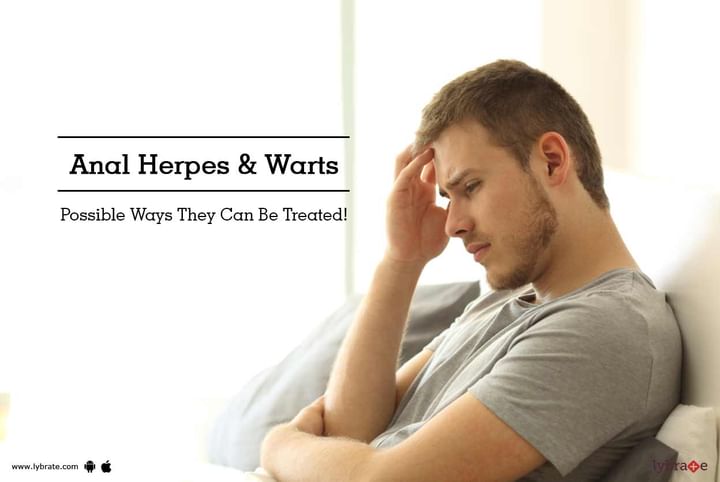Anal Herpes & Warts - Possible Ways They Can Be Treated!
Anal herpes and anal warts are sexually transmitted diseases. These both diseases affect the genitals. As these are sexually transmitted diseases, these are transmitted through sexual contact.
Anal Herpes:
- It is an infection caused by herpes virus, which is caused by the sore or blisters formed around the anus. This infection is caused by the herpes simplex virus (HSV) type 1 or 2 viruses.
- The symptoms of anal herpes include red bumps or white blisters, itching and pain around the anal area, development of ulcer at the site of blisters, a coating that covers the ulcers ruptures or is bleeding, any change in the bowel habit.
Treatment
- Antiviral therapy is one of the primary treatment for anal herpes. The virus responsible mainly for herpes is herpes simplex virus type II. Antiviral medications are given to patients, these medicines fight the virus. The symptoms of herpes are reduced with this therapy.
- Regular use of antiviral medication is referred to as suppressive therapy. As the name suggests, people on suppressive therapy, reduce the risk of passing the infection to their sexual partner.
- In severe anal herpes, the doctor might give intravenous antiviral therapy to control the infection.However, the herpes virus cannot be cured as it is considered a lifelong infection. The virus stays in the nerve cells for lifelong and is inactive for long periods of time. It only outbreaks when it is triggered by an externalfactor such as illness, stress, or sun exposure.
Prevention
As anal herpes is transmitted through sexual contact, one can lower the risk of this disease. Safety measures can be used are:
- Wear a condom or use barrier protection during every sexual intercourse, including anal or oral sex.
- Reduce the number of sexual partners.
- If one maintains monogamy, the risk is minimal for transmitting anal herpes.
- One should abstain from sex altogether, if possible.
Anal Warts:
Anal warts are small warts that occur around the anus. Another name for anal wart is condyloma acuminate. In many cases, anal warts don’t cause any pain or discomfort. But, they cause irritation when they grow in size and might be itchy and/or bleed. However, if there are no symptoms seen, people suffering from anal wart might not even know that they have warts. Anal warts might occur only at a spot or even spread to different parts of the genitals such as buttocks, anus, and inner thighs over a period of time.
Symptoms
The anal warts are small bumps initially, a size of the head of a pin, which is not even noticed. However, as they grow, they can develop to a size of a cauliflower-likean appearance, when several warts are clustered together to form a huge lump. These warts are peach colored and the color may vary from yellow, light brown, or pink and it might even blend with the skin color. Usually the anal warts are without any pain or discomfort, however, other rare occurring symptoms are itching, discharge from the anus, or bleeding. Anal warts in women might appear on vagina, vulva, or at the cervix, whereas in men it can develop on penis, scrotum, groin area, or thighs.
Treatment
Topical medication can be used to treat anal warts, such as imiquimod, podofilox, podophyllum, etc. Another treatment of anal wart that depends upon the location and severity of the condition:
- Cryotherapy
- Electrocautery
- Laser treatments
Surgery can be recommended for larger warts that do not respond to medications. In case you have a concern or query you can always consult an expert & get answers to your questions!



+1.svg)
